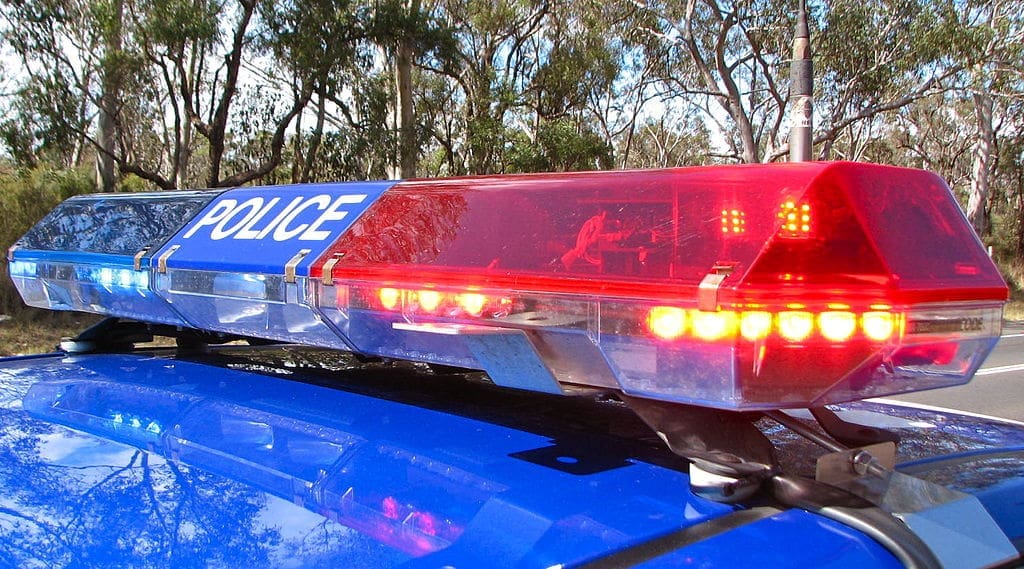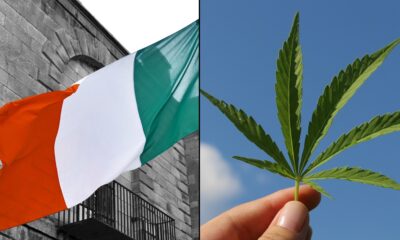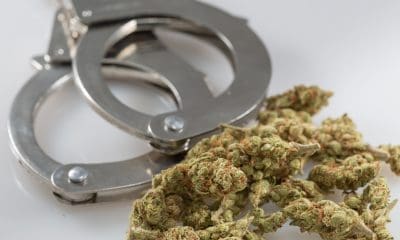Politics
Proposed Washington State Ballot Initiative Would Decriminalize Drug Possession And Expand Recovery Services

Washington State activists have filed a proposed ballot initiative that would remove criminal penalties for simple drug possession and direct nearly $150 million annually to expand substance misuse treatment, with a focus on outreach and long-term recovery support.
“Treating drug use as a crime has caused more harm than good,” says the measure’s statement of intent. “It has failed to produce positive outcomes like reduced rates of substance use disorder and drug overdose. It has failed to address root causes of substance use disorder like social isolation, depression, and anxiety. It has instead subjected people to the compounding traumas of arrest, prosecution, and incarceration, and saddled them with criminal records that erect barriers to stable housing, employment, and protective social connections.”
The group behind the would-be initiative, Commit to Change WA, announced last September that it was working on ballot language and would begin gathering signatures this month. The campaign is expected to begin publicizing the measure in coming weeks, with the goal of qualifying it for November’s ballot.
The measure was officially filed last month, and Monday was the deadline to submit challenges to the official ballot title, which says, “This measure would fund substance use disorder prevention, outreach, recovery, training, study, and public education; decriminalize drug possession but allow seizure and forfeiture; authorize vacation of certain drug-related convictions; and amend related laws.”
In 2020, voters in neighboring Oregon passed a similar ballot measure to decriminalize drugs and fund access to treatment and har reduction services.
If the new Washington initiative gets on the ballot and a majority of voters approve, it would eliminate the state’s existing penalties around possession and use of all drugs. Authorities could still seize illegal substances, but law enforcement would then have to refer individuals to outreach services, where people could access treatment and be connected with other support programs.
—
Marijuana Moment’s journalism is made possible by readers like you who value this work enough to support us with monthly pledges on Patreon. If you rely on our reporting to stay informed about key cannabis and drug policy developments, please help us keep doing this by becoming a sustaining subscriber today.
Backing us at the $25/month level also gets you access to our Bill Tracker so you won’t miss any important marijuana legislation in your state.
—
The proposal would also expunge past convictions for drug possession and use, removing blemishes from criminal records that can prevent people from finding jobs, securing housing and going to school.
Millions of dollars in state funds, including a major portion of cannabis tax revenue, would also go to expand outreach, treatment and long-term recovery services to support people with substance use disorder.
Beginning in the fiscal year starting in July 2023, the state would appropriate at least $115 million annually for substance use disorder prevention, outreach and engagement as well as recovery support.
At least $10 million per year, meanwhile, would go to the state Health Department to establish and maintain a harm reduction public education program that would be implemented through local health departments and tribal public health programs.
The measure would further direct the Department of Health to “leverage all available public and private insurance to provide reimbursements for treatment and recovery services.”
To help guide harm-reduction decisions, $2.6 million in funding would go the state health care authority to establish a substance use recovery services advisory committee.
Local harm reduction organizations would share another $10 million annually in funds meant for services, supplies and staffing report. Local and tribal health departments, meanwhile, would share a minimum of $3 million in grant money to pay for laboratory testing of seized substances.
The measure also aims to sharpen our understanding of drug use patterns, societal risk factors and consequences. The University of Washington’s addictions, drug and alcohol institute will receive $250,000 to research substance use behavior and risks through “multisite, longitudinal cohort studies of diverse people in Washington who use substances other than cannabis and alcohol.”
Commit to Change WA has said in the past that while Washington funds treatment for substance use disorder better than many other states, people are often unaware of those services or have difficulty accessing them. Long-term recovery services after treatment are also lacking, the group has said.
“A significant percentage of people with substance abuse disorders in our state are not receiving necessary services and finding pathways to recovery,” the proposed ballot measure says. “Services are either unavailable or inaccessible for people who want and need them, causing a great toll on our entire community, including tragic loss of life through overdose.”
Formerly known as Treatment First WA, the group in 2020 attempted to qualify a separate decriminalization measure for that year’s state ballot, but the outbreak of COVID-19 interrupted the signature gathering effort and organizers shifted their focus to the legislature.
After months of delay, state lawmakers introduced House Bill 1499, but it failed to advance out of committee before a legislative deadline last year.
Shortly thereafter, the state Supreme Court overturned Washington’s felony law against drug possession completely, sending lawmakers scrambling to replace the law. Ultimately they approved a modest reform, reducing the state’s felony charge for drug possession to a misdemeanor and earmarking more money for treatment. But the law’s criminal penalties will expire in 2023, an effort to encourage lawmakers to revisit the policy.
The law, which took effect in May, was widely seen by advocates as a half-step toward meaningful reform. Many called on lawmakers to further invest in outreach and recovery and urged further dismantling of the criminal drug war.
Commit to Change said after the bill’s passage that it “didn’t dedicate any funding for the services to be provided, leaving it to the legislature to decide whether and what to appropriate each budget cycle.” The new initiative aims to change that.
Seattle recently became the largest U.S. city to decriminalize psychedelics following a City Council resolution in October.
Washington State lawmakers also briefly considered a bill this session that would have legalized what the legislation called “supported psilocybin experiences” for adults 21 and older. That proposal, however, failed to pass out of committee by a deadline earlier this month.
Regardless of what happens with Commit to Change’s latest proposal, Washington’s new misdemeanor possession law is already set to expire. As passed by the legislature, the law’s criminal penalty provision will dissolve on July 1, 2023, again leaving the state without a law against drug possession. That feature was included as an incentive for lawmakers to revisit the issue in coming years, but the possibility of a decriminalization measure on the ballot in 2022 could create further pressure to act.
McConnell Blasts Marijuana Banking In House-Passed China Bill, Calling It A ‘Poison Pill’
















